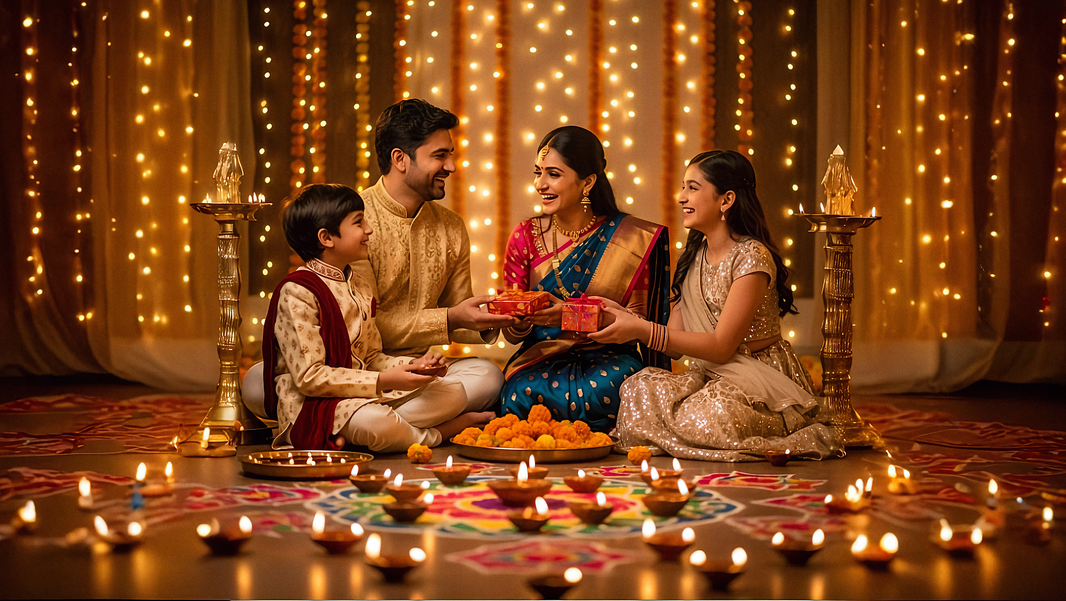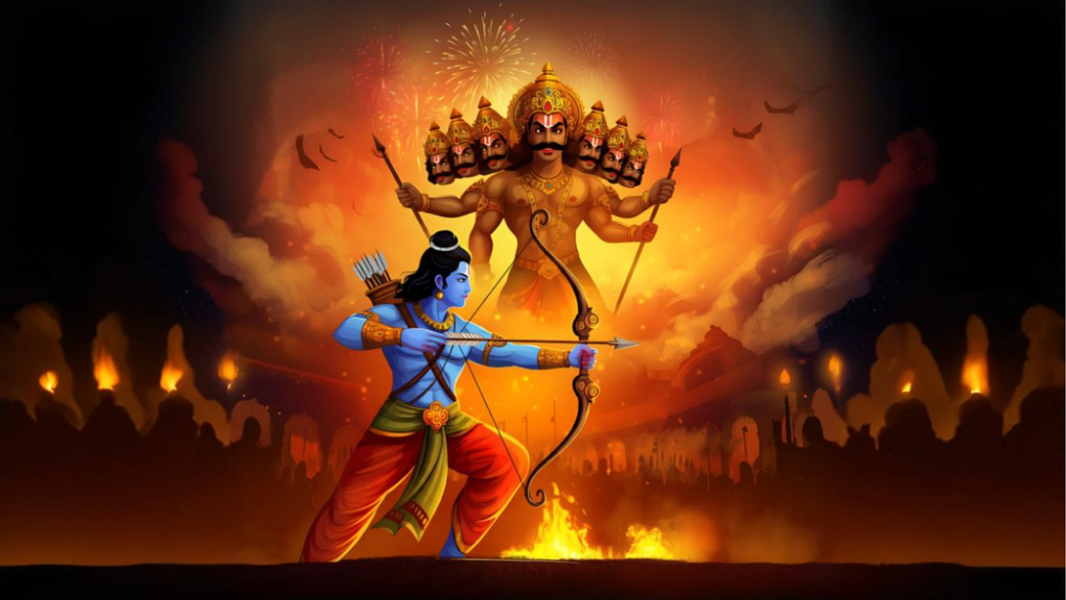You meet someone new. It feels different. Hopeful. Promising. There’s excitement in the air. The kind that makes you believe maybe, just maybe, this time it’s going to be different.
And for a while, it is.
But then, it begins again. The emotional distance. The misaligned expectations. The quiet ache of giving more than you receive. That familiar twinge of disappointment when you realize you’re playing out the same story in a different body.
You wonder, “How does this keep happening? Why do I always end up here?”
You’re not alone in this question. And more importantly, you’re not broken.
In the Vedic worldview, such patterns are not dismissed or pathologized. They are seen as meaningful threads in the tapestry of your karma. Tools not for judgment but for awakening.
Not Just About Them. It Starts With You.
In Vedic thought, relationships are not just about compatibility. They are mirrors of your inner state. The people you attract aren’t random, they’re resonant.
They reflect what you’re ready to see. Or what you’ve been avoiding.
This happens because of something called samskaras, subtle impressions formed through your past experiences, relationships, and even ancestral conditioning. Over time, they solidify into patterns. They shape what you unconsciously seek, accept, and tolerate in love.
So, if you carry an internalized belief like “I have to work hard to be loved,” you may find yourself drawn to partners who demand emotional labor. If somewhere inside, you believe “love always hurts,” then your nervous system might interpret calm, secure love as boring.
The Vedic tradition doesn’t label this as wrong. It approaches it with compassion. These patterns aren’t punishments. They are invitations, opportunities to evolve from unawareness to awareness.
Which means the real question isn’t “Why do they keep doing this to me?” It’s “Which part of me keeps returning to this dynamic?” Not from a place of blame. But from a place of awakening.
Jyotisha: Your Cosmic Blueprint
This is where Jyotisha can offer profound insight.
Unlike modern astrology that often focuses only on predictions or zodiac sign compatibility, Jyotisha is a sacred science. It doesn’t just look at personality traits. It reveals karmic design. It offers a window into your tendencies in love, your emotional needs, your attachment style, and your soul’s evolution through relationships.
For example:
-
The Moon in your chart shows how you feel secure and nurtured.
-
Venus reveals your romantic expressions and what you find beautiful or pleasurable in love.
-
Mars influences desire and conflict style.
-
And your Navamsa chart (D9) can speak volumes about your long-term partnership karma.
When two people’s charts are studied together (a practice called synastry), Jyotisha can illuminate:
-
Where your energies harmonize or clash.
-
Whether your paths are aligned for growth or set up for karmic clearing.
-
Why you may feel safe with someone yet misunderstood, or attracted yet emotionally disconnected.
It’s not about labeling someone as good or bad for you. It’s about seeing clearly where the support lies, and where the friction teaches you something deeper.
Karma Is Not a Cage, It’s a Compass
So many people ask:
-
“Why do I attract emotionally unavailable people?”
-
“Why does every relationship start with fireworks and end in confusion?”
-
“Why do I keep choosing the wrong person?”
Vedic psychology offers a radical reframe.
You’re not cursed. You’re not flawed. You’re being shown something.
In the Vedic tradition, karma is not fatalistic. It’s educational. It teaches through experience. When a relationship pattern repeats, it’s not to trap you, it’s to transform you.
The same lesson will return. Sometimes louder, sometimes gentler, until it is acknowledged and integrated. That’s why even when you change partners, the storyline might feel eerily familiar. Because the karmic theme remains active until it is seen with awareness.
The gift is: the moment you truly understand the pattern, the need for repetition dissolves. And suddenly, different kinds of people start entering your orbit.
Pause for Inquiry
Before you react, before you cut ties or blame yourself or overanalyze their last text, pause.
Ask yourself:
-
What part of me believes I must earn love?
-
Why do I feel guilt for expressing my needs?
-
Am I drawn to intensity because I’m unfamiliar with peace?
-
What does my nervous system equate with “normal” love?
These are not casual questions. They’re doorways. Whether through journaling, mantra, therapy, or silent meditation, dare to go there. Even five minutes of deep honesty can begin to shift a lifelong pattern.
The truth is: the cycle wasn’t a trap. It was a mirror.
Should I Stay or Leave My Relationship?
A question that echoes in the hearts of many, especially in their 20s and 30s.
You’re torn. One part of you wants to hold on. Another part wants to walk away. You’ve done the quizzes, talked to friends, and even Googled for signs.
But real answers rarely live outside you. They emerge from viveka (discernment).
In the Vedic tradition, discernment is not driven by fear, guilt, or loneliness. It’s a quiet knowing born from deep listening. You ask not “What’s easy?” or “What’s familiar?” but “What serves my soul’s unfolding?”
Sometimes, love means staying and growing together. Sometimes, love means releasing with respect. Both can be acts of alignment.
Love Marriage vs Arranged Marriage: A Vedic Lens
In many Indian families, the question of arranged marriage vs. love marriage is more than personal—it’s cultural. But Vedic wisdom doesn’t take sides.
It asks a different question altogether: Does this union support your dharma?
Dharma is not just duty. It’s your soul’s path. A relationship, whether found through a dating app or family introduction, is sacred if it nourishes your evolution.
Does the relationship bring out your integrity? Your authenticity? Does it grow your patience, clarity, or compassion? Or does it distort your sense of self?
Jyotisha can support this exploration. Not to replace your choice but to deepen your understanding. When used rightly, relationship astrology can show whether a connection is built on karma, chemistry, or relationship compatibility.
5 Ways to Break the Pattern
So what can you do to shift these patterns consciously?
1. Cultivate Self-Awareness
Trace the threads. What emotional experiences repeat in your love life? What beliefs sit beneath them? Do you believe you’re too much? Not enough? Begin to name the undercurrent.
2. Understand Your Birth Chart
Get a detailed Jyotisha reading not just for curiosity, but for insight. Your Navamsa chart, the 7th house of partnerships, and the strength of Venus, the Moon, and their lords. These all hold clues.
3. Respond, Don’t React
Next time a conflict arises or an old feeling returns, pause. Ask: Is this reaction from now… or from before? You don’t have to fix it instantly. Just notice. That’s the beginning of change.
4. Practice Non-Attachment
The Bhagavad Gita reminds us, “You have a right to your action, but not to the fruits thereof.” Love is not a project to perfect. It’s a process to participate in. Show up fully. Let go of the outcome.
5. Invite Sacred Dialogue
Speak not just about goals and weekends but about values, fears, childhood wounds, and dreams. Talk about the “why” of your relationship, not just the “how.” This is how intimacy deepens and old patterns dissolve.
Love Is a Mirror. Let It Reflect You Back to Yourself.
You are not meant to suffer through love. You are not here to prove yourself worthy of it.
You are here to awaken through it.
The purpose of love, in the Vedic sense, is not just emotional satisfaction, it is spiritual evolution. It is the sacred friction through which clarity emerges. It is the field in which the soul remembers itself, again and again.
Some relationships are meant to last a lifetime. Others, a season. But all of them, when approached with awareness, are sacred.
Conclusion
At WeWake our expert astrologers and Vedic wisdom coaches don’t give quick fixes or false hope. They help you decode your karmic design, understand your relationship cycles, and make empowered choices.
Whether you're navigating a long-distance relationship, wondering, “Is this the right partner for me?” or carrying the heartbreak of patterns you don’t understand, we’re here to hold space for truth, healing, and conscious evolution.
You don’t need to repeat the same story forever. You can change the ending.
With clarity. With courage. With compassion.
Because the love you’re looking for? It begins within.







